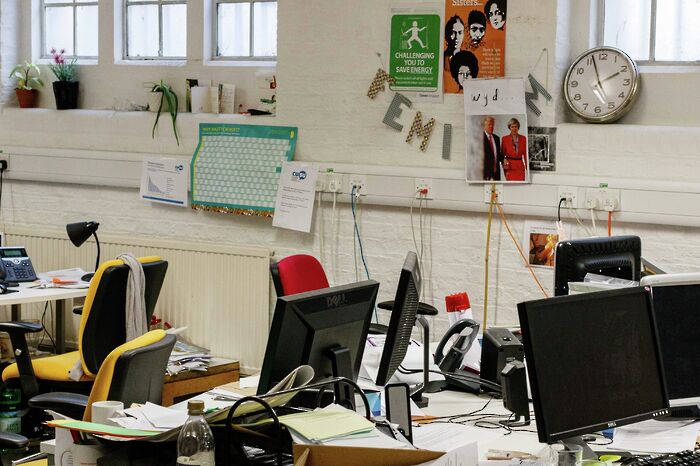Strikes can be particularly difficult for STEM students, but our support is just as important
The impact of strikes has a large impact on STEM students, but that doesn’t mean students can’t support their striking lecturers in alternative ways

The impact of the ongoing University and College Union (UCU) industrial action can vary massively between departments: some are essentially shut down, while other faculties seem barely affected. For students in Economics, Engineering, Sciences and Maths, the latter is usually the case, often due to relatively few faculty members being unionised. This can cause significant problems for students who don’t want to cross picket lines, who face the prospect of missing out on useful contact hours that their peers will benefit from. But, despite the challenges, this doesn’t mean STEM students shouldn’t, or can’t, take part in the strikes.
STEM students seeking to show solidarity with striking staff face some very specific obstacles. STEM degrees tend to have very precise and prescriptive curricula; what students are examined on at the end of the year is often rigidly dependent on what has been lectured. There can also be significant differences between what is taught and what is found in textbooks, making just ‘doing the reading’ risky at best, and useless at worst. Furthermore, even relying on lecture notes can be difficult due to lecturers’ verbal remarks and the gaps routinely left in lecture notes that can only be filled by attending the lecture.
“...we hope that STEM students can be just as involved as their peers.”
Lectures for STEM subjects are also highly interdependent. Missing one lecture’s worth of content can prevent you understanding subsequent lectures. Rather than the broad thematic overviews in English, for example, STEM lectures form the core of the Tripos, and missing any significant number can have a major impact. The same is true for labs, which are usually compulsory. Missed sessions can even lead to students being docked marks from their final grade.
However, while these issues are certainly particularly pronounced for STEM students, we should recognise that they ultimately pale in comparison to the reasons our staff our striking. Staff have been saddled with a real-terms pay cut of 20% over the last decade, and increasing pension contributions have squeezed take-home pay even further while simultaneously decreasing the benefits staff get when they retire. Casualisation means many of our staff are being put on shorter and shorter hours in order to prioritise flexibility over staff’s stability and livelihoods. This impact is particularly felt by our female, BME and disabled staff due to the insufficient action taken to overcome the gender, race and disability pay gaps.
While STEM subjects are often portrayed as ‘apolitical,’ what goes on in our faculties is far from it. And STEM students’ support for the ongoing industrial action is just as important as that of any other student: any resolution to this strike will affect faculty members across Cambridge. People on picket lines acknowledge how difficult missing content can be for STEM students, and will generally understand if students think missing out on lectures and faculty-based supervisions is simply too difficult to overcome. Furthermore, multiple UCU members have already clearly and openly stated that they don’t want students to miss compulsory lectures/labs/supervisions that could affect their final mark.
That said, this doesn’t mean students — even if they feel compelled to cross picket lines — can’t support the strikes in other ways.
During the strikes, breakfast runs and rallies will be held everyday — attending these show our staff that we care about the issues they are striking for and helps keep morale up during the strike. Students can email different members of staff to let them know they are supportive of their decision to strike, and can email university management stating that they’d like to see the strike resolved.
Furthermore, the burden of missing lectures can be reduced through note-sharing, informal discussion groups and mentoring sessions being organised between students who do not want to cross picket lines on Strikebridge.
The staff that are striking are striking for everybody, and the conditions that they are fighting for will affect the staff that work through the strike. Just because STEM students’ lecturers are often less likely to strike, this doesn’t mean we shouldn’t show our support for the better employment conditions that the strike could bring.
Overall, while 8 days of missed content might be difficult to catch up on, a successful strike can make a world of difference to members of staff across Cambridge. Any show of support will be appreciated, and staff will understand if people feel they are unable to take part in strike action for the full 8 days. By highlighting the alternative ways to support the strikes, we hope that STEM students can be just as involved as their peers.
 News / Caius mourns its tree-mendous loss23 December 2025
News / Caius mourns its tree-mendous loss23 December 2025 Comment / Yes, I’m brown – but I have more important things to say22 December 2025
Comment / Yes, I’m brown – but I have more important things to say22 December 2025 News / Cambridge welcomes UK rejoining the Erasmus scheme20 December 2025
News / Cambridge welcomes UK rejoining the Erasmus scheme20 December 2025 News / CUP announces funding scheme for under-represented academics19 December 2025
News / CUP announces funding scheme for under-represented academics19 December 2025 Interviews / Politics, your own way: Tilly Middlehurst on speaking out21 December 2025
Interviews / Politics, your own way: Tilly Middlehurst on speaking out21 December 2025










